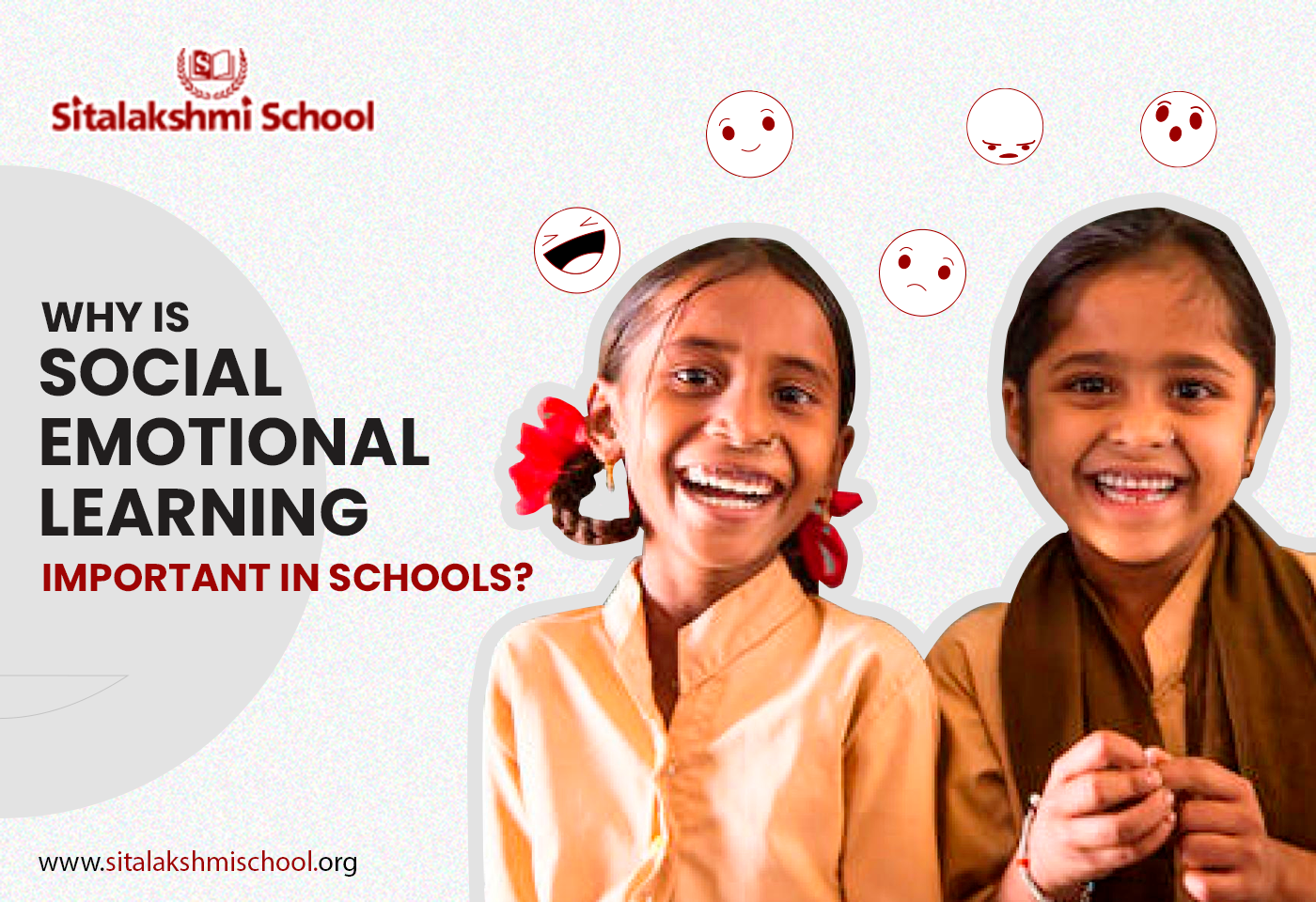In today’s rapidly changing world, education transcends traditional academics. Beyond math, science, and literature, there is a pressing need to nurture the holistic development of students. This is where Social-Emotional Learning (SEL) steps in as a game-changer. As educational paradigms shift, the importance of SEL in schools is increasingly recognized. This blog delves into the significance of integrating SEL into school curricula, explores the benefits of a dedicated SEL curriculum, highlights the impact of SEL skills on academic success, and underscores why SEL is a vital ingredient in preparing students for life’s challenges.
Social-Emotional Learning in Schools: A Holistic Approach
Social-Emotional Learning in Schools encompasses a range of skills that empower individuals to understand and manage their emotions, build positive relationships, and make responsible decisions. This holistic approach to education acknowledges that cognitive development is intricately linked to emotional and social development. Integrating SEL into schools acknowledges the reality that students’ emotional well-being plays a pivotal role in their overall growth and success.
The Role of SEL Curriculum: Nurturing Emotional Intelligence
Emotional Regulation: SEL equips students with the ability to recognize, understand, and manage their emotions effectively. This skill helps students navigate challenges, conflicts, and stressors with resilience.
Empathy and Interpersonal Skills: An SEL curriculum fosters empathy and interpersonal skills, encouraging students to comprehend the feelings and perspectives of others. This leads to the formation of strong, positive relationships.
Decision-Making and Problem-Solving: SEL empowers students to think critically and make responsible decisions. By understanding the consequences of their choices, students become adept problem-solvers, capable of navigating complex situations.
Self-Awareness and Self-Confidence: Through SEL, students gain insight into their strengths, weaknesses, and values. This self-awareness cultivates self-confidence, enabling them to pursue their goals with determination.
Social-Emotional Learning Benefits: Beyond the Classroom
Improved Academic Performance: A strong foundation in SEL is correlated with better academic performance. Emotional regulation and effective communication positively impact students’ ability to engage in learning and collaborate with peers.
Enhanced Emotional Well-Being: SEL equips students with coping mechanisms to manage stress, anxiety, and emotional challenges. This contributes to positive emotional well-being, fostering a conducive environment for learning.
Stronger Interpersonal Relationships: Students who possess SEL skills are more likely to form meaningful connections with their peers and teachers. This supportive network further nurtures their emotional growth.
Preparation for Real-World Challenges: SEL equips students with the skills necessary to tackle the challenges they will encounter beyond the classroom, such as workplace dynamics, relationship issues, and personal setbacks.
Building a Social-Emotional Curriculum
Embedding SEL Across Subjects: Infusing SEL concepts into various subjects ensures that students receive consistent exposure to emotional intelligence principles. This cross-curricular approach reinforces the importance of SEL in all aspects of life.
Explicit SEL Lessons: Dedicated SEL lessons provide students with structured opportunities to learn and practice skills such as active listening, conflict resolution, and emotional regulation.
Interactive Activities: Engaging activities, role-playing exercises, and group discussions encourage students to apply SEL skills in real-life scenarios. These activities enhance the retention of learned concepts.
Collaboration with Families: Schools can collaborate with families to reinforce SEL concepts at home. When parents and caregivers also emphasize the importance of emotional intelligence, students receive consistent messaging.
SEL Skills for Academic Success: The Synergy
Improved Focus and Attention: SEL skills enable students to manage distractions and concentrate better, leading to improved focus and academic performance.
Effective Communication: Clear communication is essential for learning. SEL skills enable students to express themselves articulately, facilitating better understanding and engagement.
Resilience and Grit: In the face of challenges, students with strong SEL skills are more likely to persevere and approach setbacks with determination.
Collaboration and Teamwork: Successful collaboration relies on empathy, effective communication, and conflict resolution—skills that are nurtured through SEL.
The integration of Social-Emotional Learning into the Sitalakshmi School curriculum transcends the conventional boundaries of education. It recognizes the inherent connection between emotional intelligence and academic success. By fostering emotional regulation, empathy, and effective communication, SEL equips students with the skills necessary to thrive not only academically, but also in their personal and professional lives. As schools embrace SEL as an integral component of their mission, they contribute to the development of well-rounded individuals who are prepared to face the complexities of the world with resilience, compassion, and the ability to make responsible choices.

